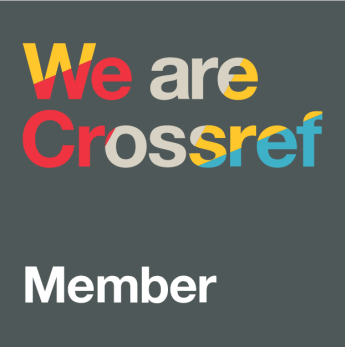The Effectiveness of Group Counseling using Self-Management Techniques to Reduce Nomophobia in Vocational Students
DOI:
https://doi.org/10.22460/quanta.v9i1.5274Keywords:
Self-management, Nomophobia, StudentAbstract
This study aimed to examine the effectiveness of self-management techniques in reducing nomophobic behavior in vocational students. The research method used Single Subject Research (SSR) design with an A-B-A model. This research was conducted in 2024; the research subjects were students who experienced high levels of nomophobia. Data were collected through direct observation of smartphone use behavior, with visual analysis of changes during the baseline phase, intervention, and after the intervention was stopped. The results showed a significant decrease in the subject's level of nomophobia during the intervention phase and stability of behavior change after the intervention was completed. In conclusion, the study found that self-management techniques can be effectively implemented in intervention programs to reduce smartphone dependence, especially among adolescents. The contribution of this study is to provide practical guidance for teachers, school counselors, or other educational personnel in helping students who experience nomophobia through self-management techniques.
References
Asyrofi, Anang, Indira Anggriani, and Annisa Rahmita Soemarsono. "Implementation of Discrete Time Markov Chain Method to Estimate The Transition of Smartphone Brands Usage in Balikpapan." Jurnal Ilmu Dasar 24.2 (2023): 159-168. https://doi.org/10.19184/jid.v24i2.34872
Bandura, A. (1991). Social Cognitive Theory of Self-Regulation. Organizational Behavior and Human Decision Processes, 50(2), 248-287. https://doi.org/10.1016/0749-5978(91)90022-L
Bhattacharya, S., Bashar, M., Srivastava, A., & Singh, A. (2019). NOMOPHOBIA: NO MObile PHone PhoBIA. Journal of Family Medicine and Primary Care, 8, 1297-1300. https://doi.org/10.4103/jfmpc.jfmpc_71_19
Ercoşkun, M. H. (2016). Adaptation of Self-Control and Self-Management Scale (SCMS) into Turkish Culture: A Study on Reliability and Validity. Kuram Ve Uygulamada Egitim Bilimleri, 16, 1125-1145. https://doi.org/10.12738/ESTP.2016.4.2725
Grady, P. A., & Gough, L. L. (2014). Self-management: a comprehensive approach to management of chronic conditions. American journal of public health, 104(8), e25-e31.. https://doi.org/10.2105/AJPH.2014.302041
Günlü, A., & Baş, A. U. (2022). The mediating role of self-control in the relationship between nomophobia and basic psychological needs in university students. International Journal of Progressive Education, 18(4), 97-109. https://doi.org/10.29329/ijpe.2022.477.7
Kanfer, F. H. (1970). Self-regulation: Research, issues, and speculations. In C. Neuringer & J. L. Michael (Eds.), Behavior modification in clinical psychology. Appleton-Century-Crofts. https://www.scirp.org/reference/referencespapers?referenceid=1035898
Lestari, M. J. D., & Novianti, L. E. (2022). Smartphone Addiction of Early Adolescents During COVID-19 Pandemic. Daengku: Journal of Humanities and Social Sciences Innovation. https://doi.org/10.35877/454ri.daengku1158
Lin, C.-Y., Potenza, M., Ulander, M., Broström, A., Ohayon, M., Chattu, V., & Pakpour, A. (2021). Longitudinal Relationships between Nomophobia, Addictive Use of Social Media, and Insomnia in Adolescents. Healthcare, 9, 1201. https://doi.org/10.3390/healthcare9091201
Nur, E. W., Saman, A., & Buchori, S. (2024). Implementasi E-Modul Karier Berbasis UMKM Lokal Untuk Meningkatkan Minat Berwirausaha Siswa di SMA. Jurnal Bimbingan dan Konseling Pandohop, 4(2), 1-9. https://doi.org/10.37304/pandohop.v1i1.13950
Pratama, A. R. (2018). Investigating Daily Mobile Device Use Among University Students in Indonesia. IOP Conference Series: Materials Science and Engineering, 325(1), 012004. https://doi.org/10.1088/1757-899X/325/1/012004
Putri, R. A., & Sanyata, S. (2023). Effectiveness of self-technic behavior group counseling management of reducing nomophobia. International Journal of Humanities Education and Social Sciences (IJHESS), 2(6). https://doi.org/10.55227/ijhess.v2i6.434
Sagita, D. D., & Santika, F. (2020). Nomophobia in adolescents based on gender: A case study of East Jakarta, Indonesia. International Journal of Education, 4, 92-97. https://doi.org/10.24036/00322za0002
Sari, A. I., Suryani, N., Rochsantiningsih, D., & Suharno, S. (2020). Digital Learning, Smartphone Usage, and Digital Culture in Indonesia Education. Integration of Education, 24(1), 20-31. https://doi.org/10.15507/1991-9468.098.024.202001.020-03 1
Sharma, M., Amandeep, Mathur, D. M., & Jeenger, J. (2019). Nomophobia and its relationship with depression, anxiety, and quality of life in adolescents. Industrial Psychiatry Journal, 28, 231-236. https://doi.org/10.4103/ipj.ipj_60_18
Torpil, B., & Pekçetin, S. (2021). The effectiveness of two different occupational therapy interventions on time management and on perceived occupational performance and satisfaction in university students with severe nomophobia: A single-blind, randomized controlled trial. Occupational Therapy in Mental Health, 38(1), 86-102. https://doi.org/10.1080/0164212X.2021.1977758
Widyastuti, D. A., & Muyana, S. (2019). Group counseling with self-management techniques: Effective strategies for reducing nomophobia among adolescents. PSIKOPEDAGOGIA Jurnal Bimbingan dan Konseling, 8(2), 96-102. https://doi.org/10.12928/psikopedagogia.v8i2.20509
Zhou, Z., Liu, H., Zhang, D., Wei, H., Zhang, M., & Huang, A. (2022). Mediating effects of academic self-efficacy and smartphone addiction on the relationship between professional attitude and academic burnout in nursing students: A cross-sectional study. Nurse Education Today, 116, 105471. https://doi.org/10.1016/j.nedt.2022.105471
Mamykina, L., Smaldone, A. M., & Bakken, S. R. (2015). Adopting the sensemaking perspective for chronic disease self-management. Journal of biomedical informatics, 56, 406-417. https://doi.org/10.1016/j.jbi.2015.06.006
Muecklich, N., Sikora, I., Paraskevas, A., & Padhra, A. (2023). Safety and reliability in aviation–A systematic scoping review of normal accident theory, high-reliability theory, and resilience engineering in aviation. Safety science, 162, 106097. https://doi.org/10.1016/j.ssci.2023.106097
Gonçalves, S., Dias, P., & Correia, A. P. (2020). Nomophobia and lifestyle: Smartphone use and its relationship to psychopathologies. Computers in Human Behavior Reports, 2, 100025. https://doi.org/10.1016/j.chbr.2020.100025
Sherifali, D., Berard, L. D., Gucciardi, E., MacDonald, B., MacNeill, G., & Diabetes Canada Clinical Practice Guidelines Expert Committee. (2018). Self-management education and support. Canadian journal of diabetes, 42, S36-S41. https://doi.org/10.1016/j.jcjd.2017.10.006
Franklin, M., Lewis, S., Willis, K., Bourke-Taylor, H., & Smith, L. (2018). Patients’ and healthcare professionals’ perceptions of self-management support interactions: systematic review and qualitative synthesis. Chronic illness, 14(2), 79-103. https://doi.org/10.1177/1742395317710082
Yavuz, M., Altan, B., Bayrak, B., Gündüz, M., & Bolat, N. (2019). The relationships between nomophobia, alexithymia and metacognitive problems in an adolescent population. Turkish Journal of Pediatrics, 61, 345-351. https://doi.org/10.24953/turkjped.2019.03.005
Downloads
Published
How to Cite
Issue
Section
License
Copyright (c) 2025 Andi Firdawati, Abdullah Sinring, Sahril Buchori

This work is licensed under a Creative Commons Attribution-ShareAlike 4.0 International License.
The author is responsible for acquiring the permission(s) to reproduce any copyrighted figures, tables, data, or text that are being used in the submitted paper. Authors should note that text quotations of more than 250 words from a published or copyrighted work will require a grant of permission from the original publisher to reprint. The written permission letter(s) must be submitted together with the manuscript.













